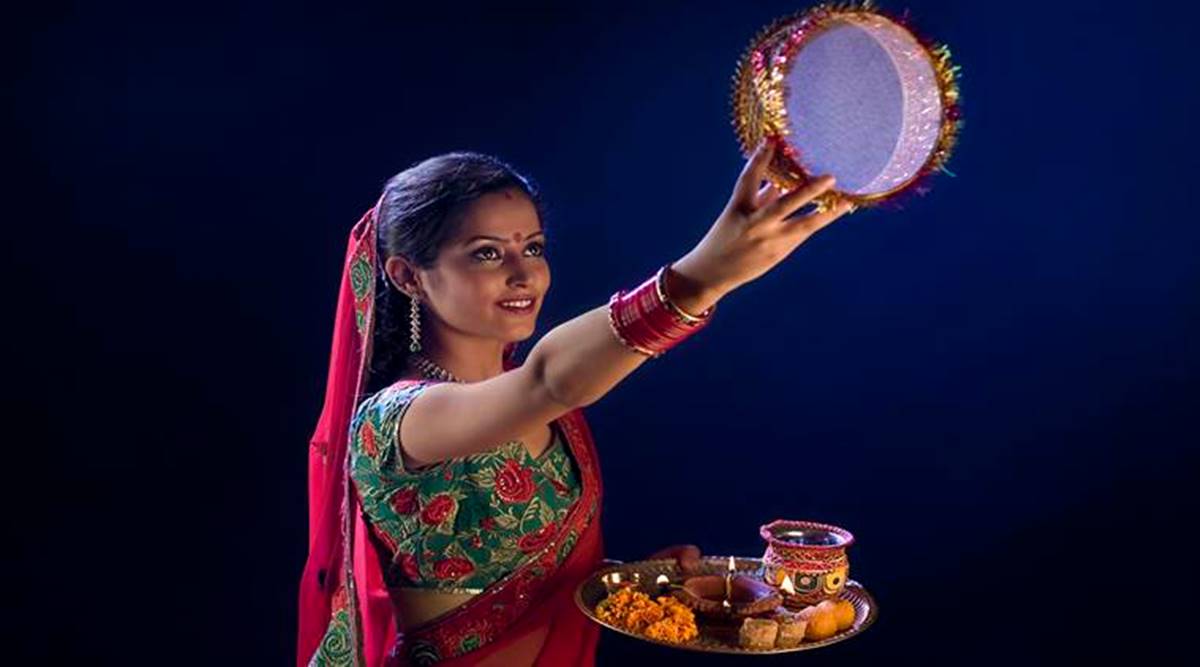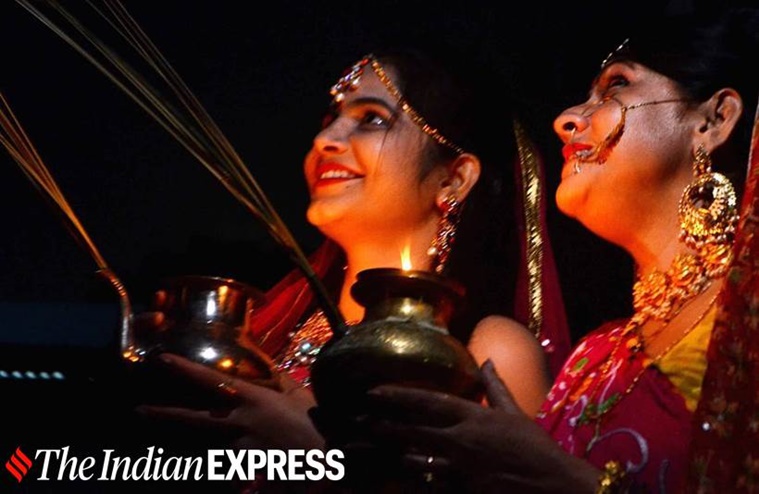
Karwa Chauth 2021: The festival is extremely popular in India.
Widely celebrated in the northern part of India, Karwa Chauth is the celebration of marriage, wherein the wife fasts the entire day for a long and healthy life for her husband.
According to Drik Panchang, Karwa Chauth fasting is done during the Krishna Paksha Chaturthi in the Hindu month of ‘Kartik’. The origin of Karwa Chauth can be traced back to Mahabharata when Savitri begged the god of death, Lord Yama, for her husband’s soul. Another episode in the epic talks about Pandavas and their wife Draupadi. It is said that Arjuna went to the Nilgiris to pray and meditate for a few days, worried about his safety Draupadi sought her brother Krishna’s help. He advised her to observe a strict fast just like Goddess Parvati did for her husband Shiva’s safety. Draupadi adhered to it, and soon Arjuna returned home safely.
 Karwa Chauth 2021: Fasting women break into smiles after sighting the moon. (Express photo by Vishal Srivastav)
Karwa Chauth 2021: Fasting women break into smiles after sighting the moon. (Express photo by Vishal Srivastav)
This year, the festival will be celebrated on Sunday, October 24. The Upavasa timing is from 6:27 am to 8:07 pm and Puja muhurat is from 5:43 pm to 6:59 pm. Moonrise on Karwa Chauth Day is expected to happen from 8:07 pm.
Every year, the festival falls on the fourth day of the Kartik month in the lunisolar calendar. It gets its name from ‘Karva’ which means earthen pots used to store wheat, and ‘chauth’ that means the fourth day. Women buy new earthen pots or karwa and decorate them and put gifts like bangles, bindis and sweets inside them. On this day, they exchange their karwas with other ladies.
Women wake up early before sunrise to observe the rituals. They begin their day with sargi – a plate full of heavy and nutritious meals which consist of ghee-loaded halwa, dry fruits, and fresh fruits given by their mother in-laws. Following which the women observe a rigorous fast without food and even water for the entire day. It is only when the moon rises that they perform further rituals and worship the moon to break their day-long fast. Usually, husbands and fiancées are expected to feed the first bite of food to their wives.





























14